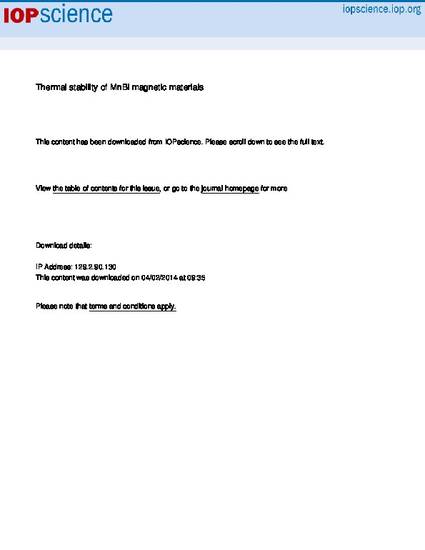
MnBi has attracted much attention in recent years due to its potential as a rare-earth-free permanent magnet material. It is unique because its coercivity increases with increasing temperature, which makes it a good hard phase material for exchange coupling nanocomposite magnets. MnBi phase is difficult to obtain, partly because the reaction between Mn and Bi is peritectic, and partly because Mn reacts readily with oxygen. MnO formation is irreversible and harmful to magnet performance. In this paper, we report our efforts toward developing MnBi permanent magnets. To date, high purity MnBi (>90%) can be routinely produced in large quantities. The produced powder exhibits 74.6?emu?g?1 saturation magnetization at room temperature with 9?T applied field. After proper alignment, the maximum energy product (BH)max of the powder reached 11.9?MGOe, and that of the sintered bulk magnet reached 7.8?MGOe at room temperature. A comprehensive study of thermal stability shows that MnBi powder is stable up to 473?K in air.
Available at: http://works.bepress.com/nikolai_zarkevich/16/

This article is from Journal of Physics: Condensed Matter 26 (2014): 064212, doi:10.1088/0953-8984/26/6/064212.